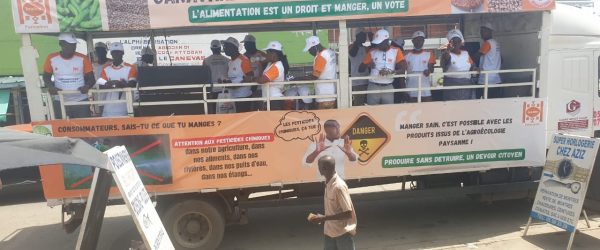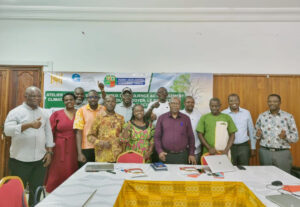The caravan in the streets of Cocody in Abidjan
“Populations! populations! consumers! consumers! Beware of synthetic chemical pesticides. They are poisons in our fields and in our plates. They kill us slowly. They pollute our soils, our waters, our environment. Let’s ban them! Let’s choose to produce without synthetic chemical pesticides to preserve our health and our environment … “, this was the main message chanted by the caravan “Conscience AlimenTERRE” which crisscrossed the town of Cocody, Abidjan in Côte d’Ivoire, Tuesday, April 22, 2023. The caravan was organized by the General Secretariat of Inades-Formation and Inades-Formation Côte d’Ivoire.
Composed of two caravan trucks carrying male and female producers who are members of PANAFCI, surrounded by young rollers distributing leaflets, the caravan left from the N’Gouan Mathias market in Cocody center to the Cocovico market in Angré, passing through the main streets of the Riviera 2 and the Palm grove. On the trucks and on the T-shirts, there were messages of information and warning against the danger of synthetic chemical pesticides, as well as the proposal of agroecology as an alternative solution.
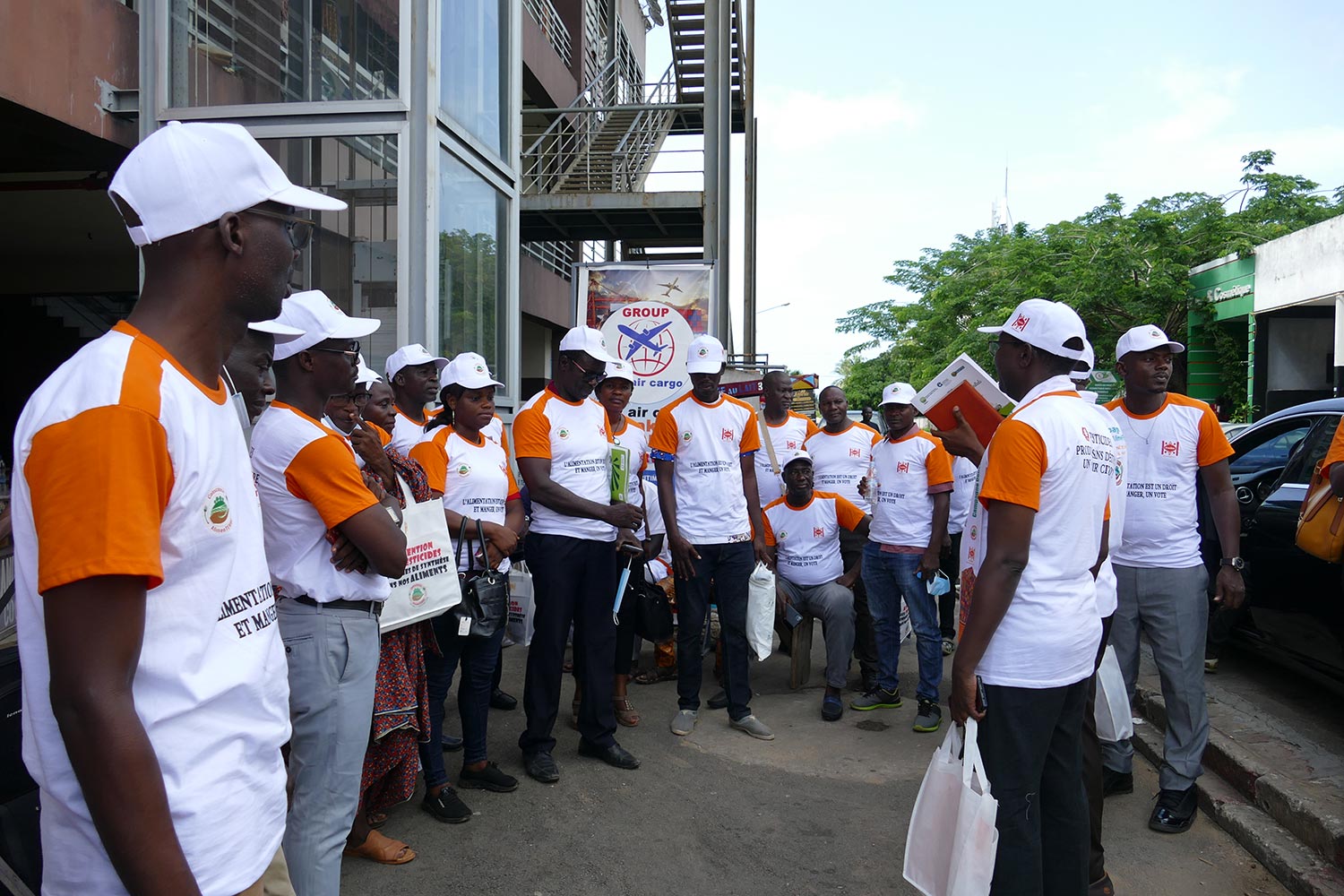
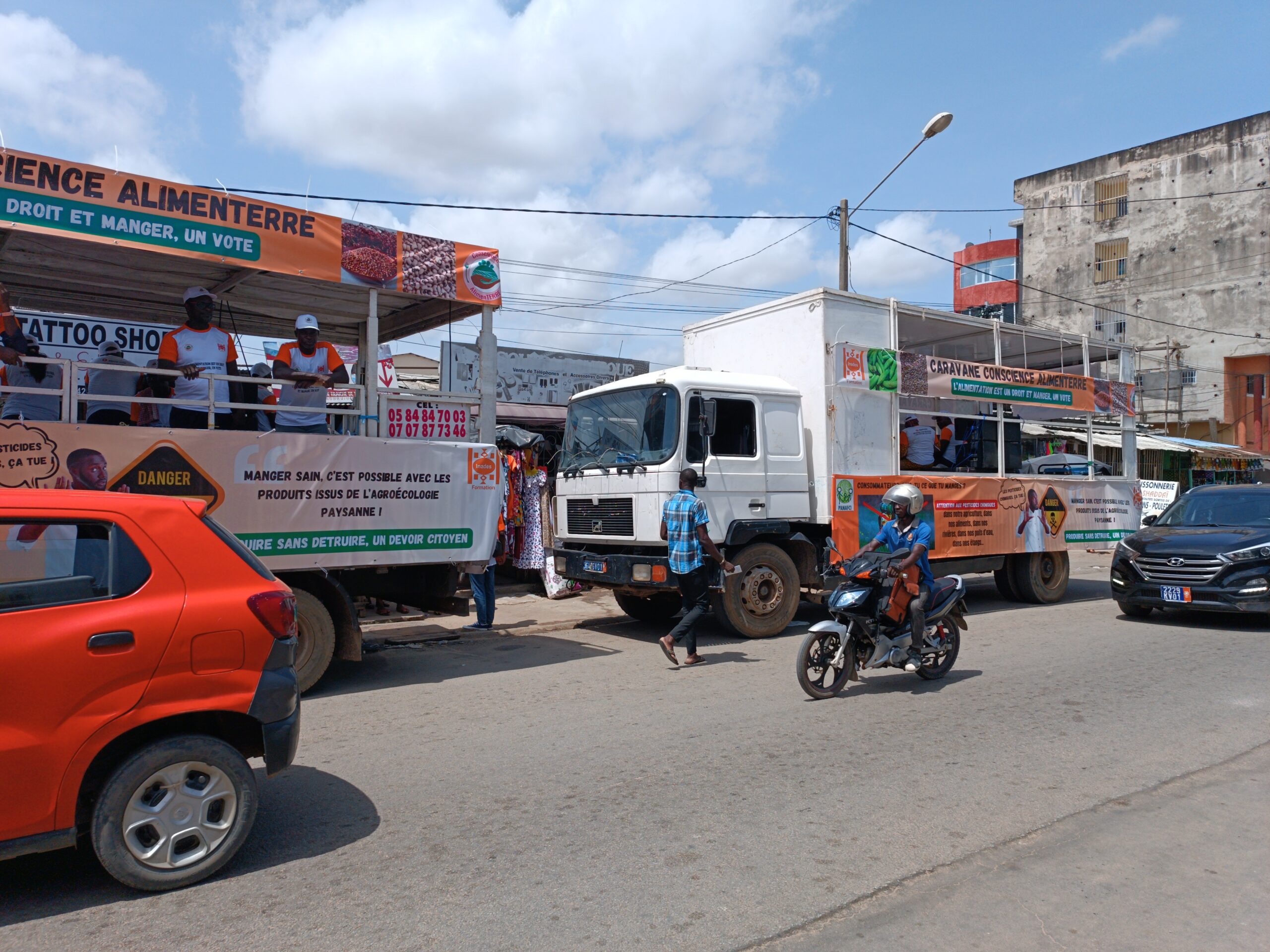
At the palm grove market, the caravanners took a break to pass on their messages to the traders and consumers present. The drop-off point for the caravan was the Cocovico market in Angré.
The caravanners went around the different corners of the markets to leave messages and exchange with each other about synthetic chemical pesticides and their dangers on the health of producers and consumers.
Traders and consumers marked their support for the different messages with various testimonials and applause.
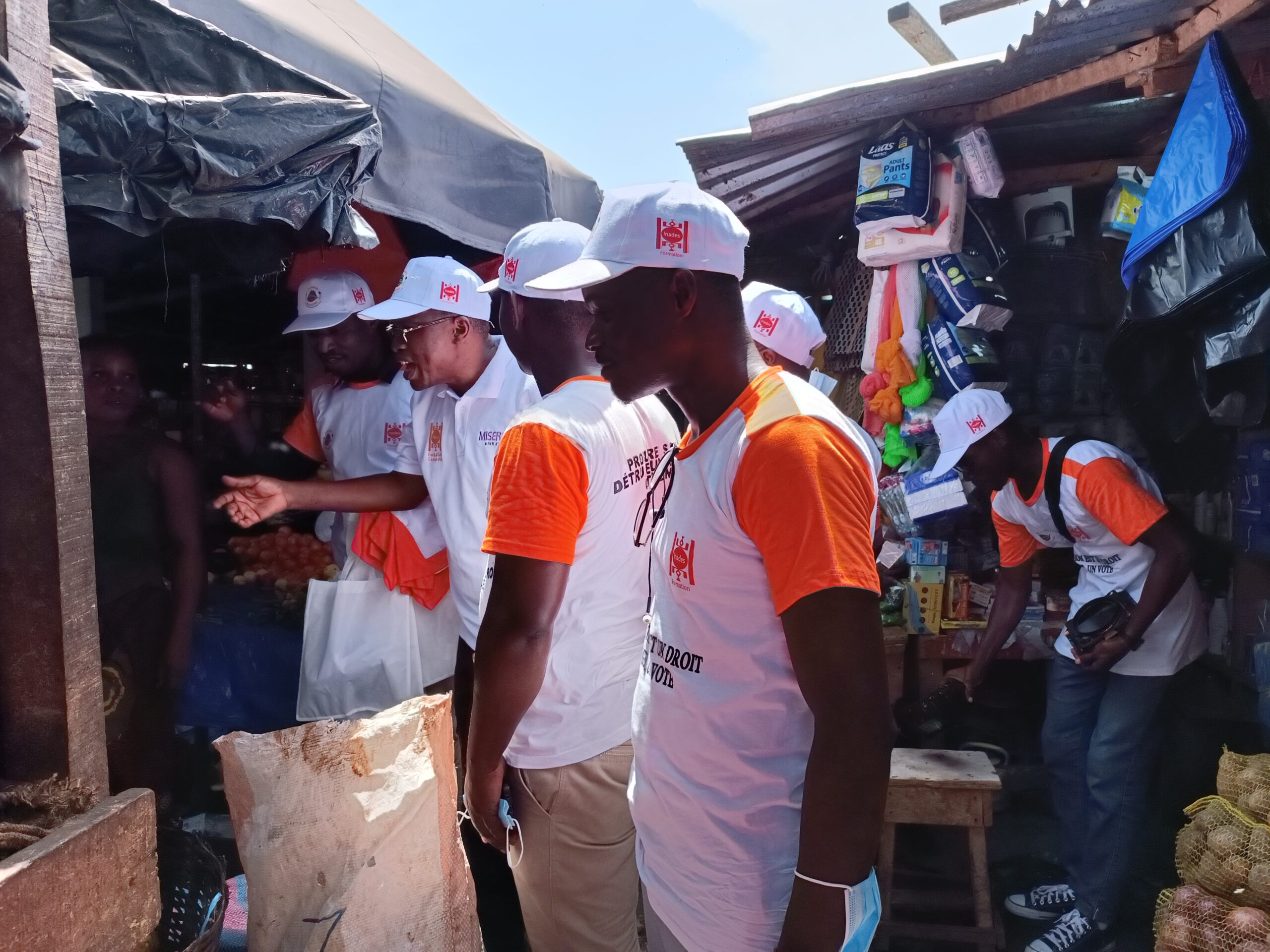
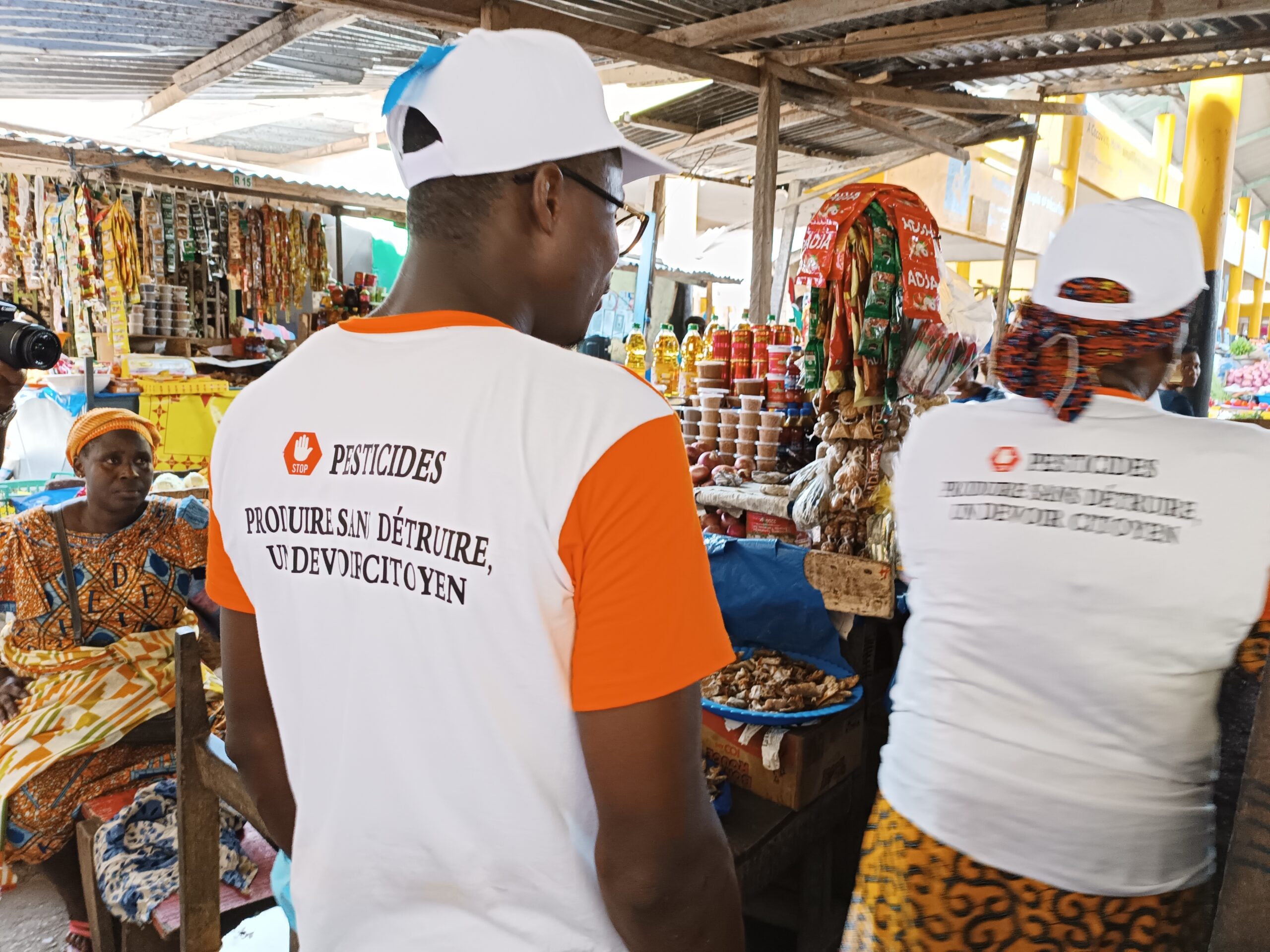
T-shirts and hats were distributed to reward volunteers for playing the games and to spread the message widely.
The caravan to spread the messages of the AlimenTERRE Awareness Campaign
The caravan was organized as a prelude to the prospective assessment of the AlimenTERRE Conscience Campaign, an awareness and advocacy campaign for the right to healthy and sustainable food for all. This campaign responds to Inades-Formation’s concern to work towards the promotion of food systems that are more respectful of the environment and health.
It takes place in all 10 countries where Inades-Formation is active.
The word “AlimenTERRE” used in the title of the campaign is a combination of “Food” + “earth”. It reminds us of the close link between the quality of the land and that of food and biodiversity. The more production practices are respectful of the quality of the land, the more biodiversity will be preserved, the healthier the ecosystem will be, the more healthy and sustainable the food will be.
The campaign is based on the observation that ” the toxicity of synthetic chemical pesticides for the environment and for humans constitutes an obstacle to the right to healthy and sustainable food for all “. The action undertaken contributes to the realization of the Universal Declaration of Human Rights in its article 25 which recognizes the right to food free of danger. It is also one of the concrete ways to contribute to the objectives of sustainable development.
However, the increasingly widespread use of synthetic chemical pesticides poses problems for health and the environment. The international and national regulations are only of a nature to decrease the risks of danger exist. However, they are not sufficient to prevent the circulation of obsolete, fraudulent or banned chemical pesticides.
One of the UN reports
[1]
describes the negative impacts of pesticide use practices on human health, the environment and society, which are not sufficiently reported in the media. Guidance on the prevention of health and environmental risks is not available to farmers and consumers in sub-Saharan Africa. Farmers, the main actors in the use of synthetic chemical pesticides, are not trained and are mostly illiterate. In addition to the intrinsic toxicity of synthetic chemical pesticides, users do not have appropriate equipment (spraying materials, protective equipment). Empty packaging is often thrown away or reused to store consumer products. Consumers do not also have a culture of questioning the safety of food products offered on the market. Urban farmers and consumers are the main actors of change.
For the common good, the campaign says ” Let’s be careful with synthetic chemical pesticides in the soil, in the atmosphere, in the water, in the rivers, in the crops and in our food “. It says ” Yes, to agro-ecological solutions “.
The campaign has three specific objectives:
- Educate farmers and consumers on their role in influencing the promotion of healthy and sustainable food, particularly in promoting food systems based on non-toxic agricultural inputs.
- Advocating for stronger regulation of the synthetic chemical pesticide industry
- Advocate for the reduction of the importation of synthetic chemical pesticides
- Advocate for the adoption of public policies in favor of agroecological inputs, respectful of health and the environment
The campaign slogan is.
“Food is a Must, and Eat is a Vote”.
Carried out by the General Secretariat of Inades-Formation in partnership with Inades-Formation Côte d’Ivoire and PANAFCI (national platform of family farming in Côte d’Ivoire), the caravan was led by 24 members and staff of these organizations.
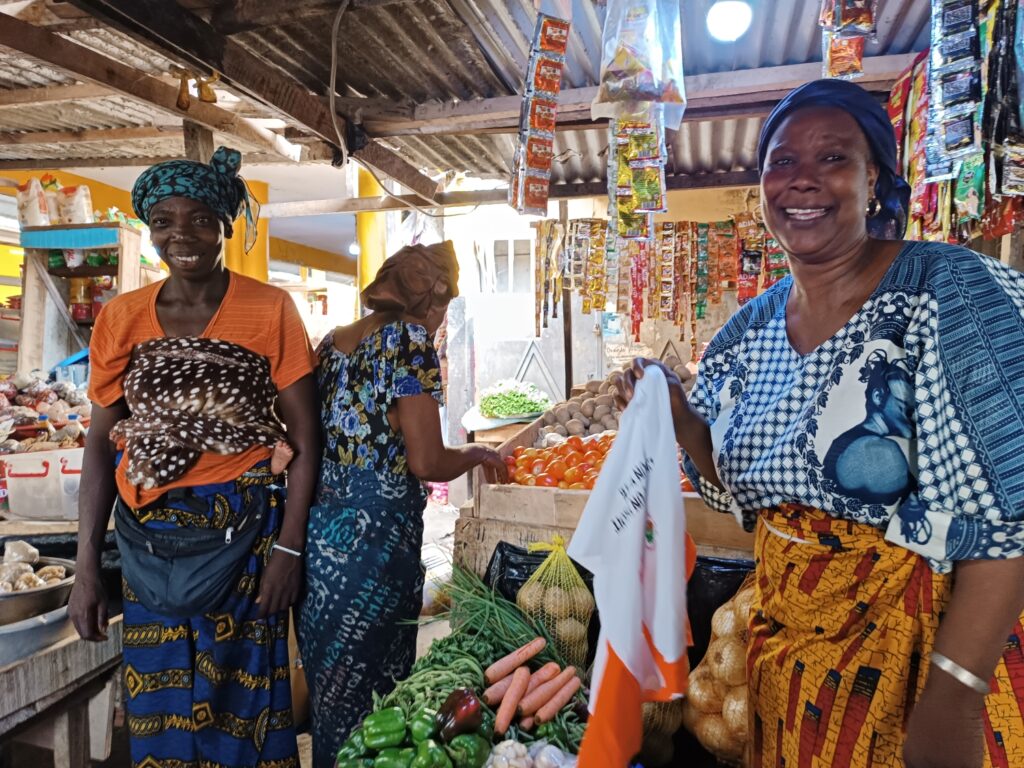
Communication Department – General Secretary Inades-Formation

